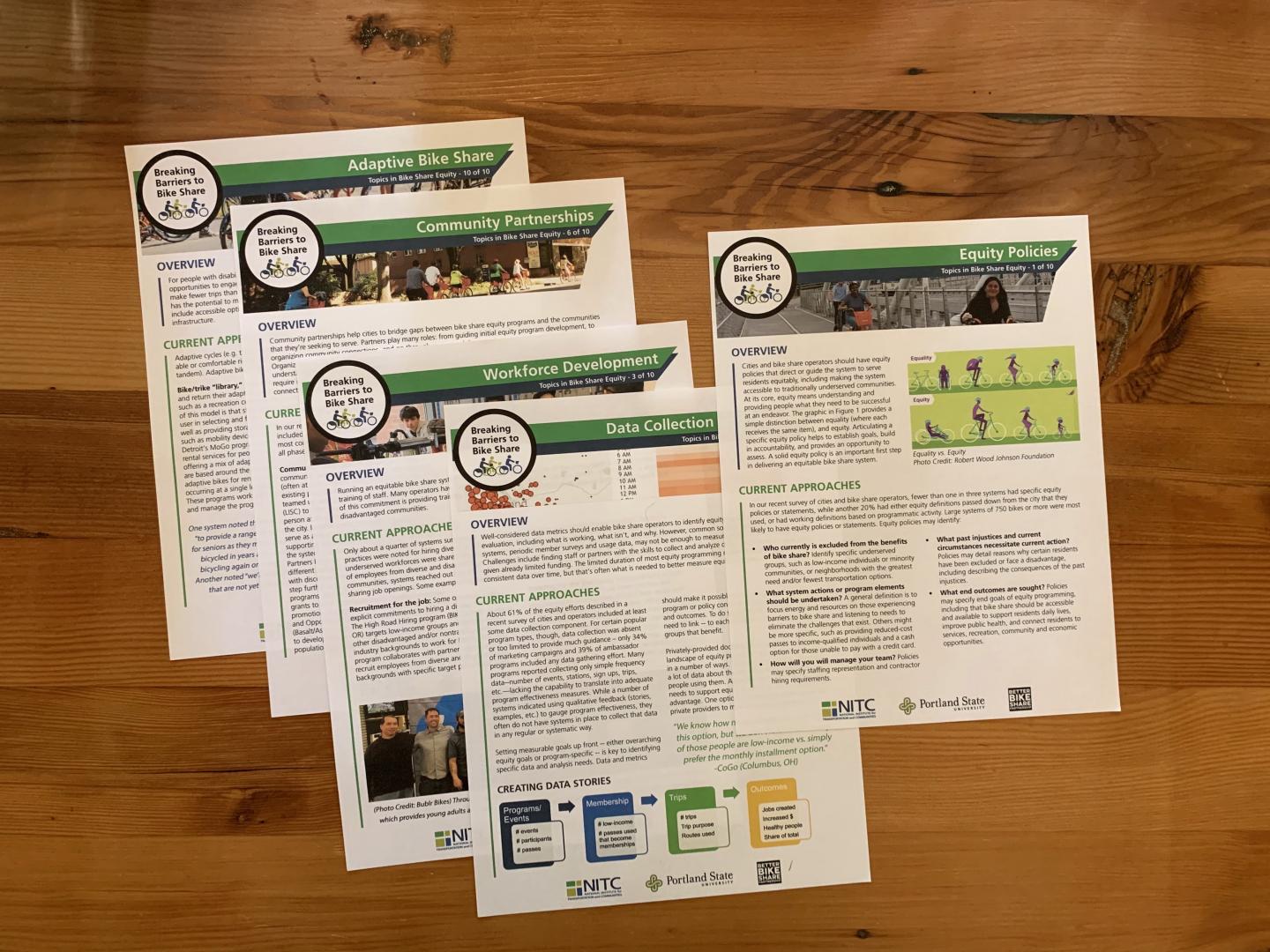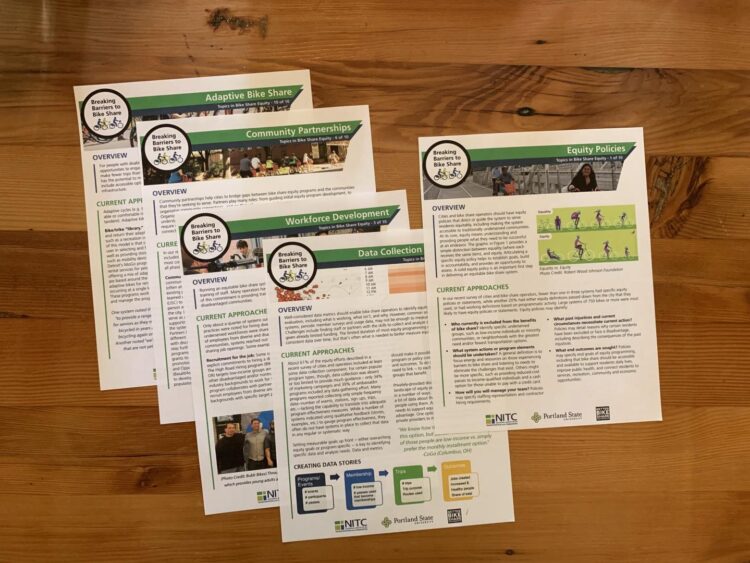A set of ten new technical briefs synthesizes best practices and case studies from over 70 U.S. bike share systems on metrics, marketing, funding and more.

Credit: Portland State University
Last year, Portland State University’s Transportation Research and Education Center (TREC) released a 130 page evaluation comparing equity-oriented programs from over 70 U.S. bike share systems across the U.S. Bike share being a relative newcomer to the transportation system, the research team was not surprised to find that approaches to equity programs ranged widely. In the latest installment, funded by the Better Bike Share Partnership and the National Institute for Transportation and Communities, the research team synthesized these findings into a series of ten 2-page briefs (https:/
Lead researcher Nathan McNeil shares further, “We set out to document the current state of equity programming for bike share systems in the U.S., and in the process create a road map for cities and operators navigating questions of equity. We wanted to make this information quick and easily accessible for them in these briefs. Important decisions and conversations around equity are happening now, that could have impacts for years to come on bike share systems.”
Across the U.S. there is a nationwide call for centering equity in all industries, and bike share is no exception. As some cities and companies are seeing significant drops in ridership during the global pandemic, it calls into question – can they afford investments in equity programming?
“One of the core questions we need to be asking is whether bike share is meant to serve the community or the companies? Is this a public good and worthy of municipal investment?” asks McNeil. “Bike share systems offer a flexible mobility option for people who stand to gain the most from more options. One of the potential benefits of a bike share system that centers equity along with some form of municipal support is that it can probably be more resilient in riding out the broader economic ups and downs rather than being at the mercy of venture capitalism.”
Laying the foundation for a bike share program starts with articulating a specific equity policy to establish goals, build in accountability, and provide an opportunity to assess. Asking questions like, “Who currently is excluded from the benefits of bike share?” and “What past injustices and current circumstances necessitate current action?” will shape how operators, agency staff, and partners make decisions as well as who is at the table making those decisions for the community.
The two-page briefs are intended as a resource for bike share professionals and community partners. They highlight key findings and offer simple, effective guidance on how to get the most effective and meaningful results from equity programming.
###
The Transportation Research and Education Center (TREC) at Portland State University is home to the National Institute for Transportation and Communities (NITC), the Initiative for Bicycle and Pedestrian Innovation (IBPI), and other transportation programs. TREC produces research and tools for transportation decision makers, develops K-12 curriculum to expand the diversity and capacity of the workforce, and engages students and professionals through education.
Media Contact
Cait McCusker
[email protected]
Original Source
https:/





